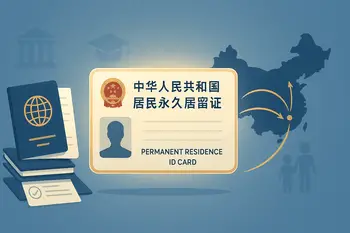
Mandarin fluency means different things to different people.
Below I give clear time estimates for levels of fluency, explain the biggest factors that speed or slow progress, and offer a practical plan you can follow to reach “fluent” Mandarin as quickly as possible.
What “fluent” means (three useful definitions)
- Conversational fluency — hold everyday conversations, ask questions, express opinions, and get around in Mandarin.
- Professional/advanced fluency — work or study entirely in Mandarin, understand news and academic texts, and participate in meetings.
- Near-native fluency — language use is indistinguishable from a native speaker in nuance, speed, and cultural knowledge.
How long to become fluent in Mandarin — realistic timeframes
- Conversational fluency (A2–B1): 3–12 months with intensive immersion or 6–18 months with steady part-time study.
- Professional/advanced fluency (B2–C1): 12–36 months of sustained full-time study plus active use in professional or academic settings.
- Near-native fluency (C2): 3–6+ years of continuous immersion, focused study of characters, idioms, and cultural nuance.
These estimates assume structured study combined with real-world practice; pure classroom study without practice usually takes longer.
Key factors that determine how fast you reach fluency
- Starting point and language background — speakers of other tonal languages or Sinitic dialects often learn tones and pronunciation faster.
- Hours per week (time commitment) — more hours produce faster results; full-time immersion dramatically shortens timelines.
- Quality of immersion — living in China or prolonged daily interaction with native speakers accelerates learning beyond classroom-only approaches.
- Study methods — a mix of structured lessons, spaced-repetition for characters, conversation practice, and graded reading is most efficient.
- Goals and motivation — clear, measured goals (e.g., pass HSK 4 in X months) focus effort and improve outcomes.
Evidence-based study plan to reach fluency faster
- 0–3 months — build the foundation
- Focus: tones, pinyin, 300–800 core words, survival phrases.
- Daily: 45–90 minutes of active study, 15–30 minutes of tone drills, 10–20 minutes of SRS flashcards (characters + vocab).
- Output: short dialogues, order food, basic directions.
- 3–12 months — reach conversational fluency
- Focus: expand to 2,000–3,000 words, basic grammar patterns, listening to slow/graded audio.
- Daily: 1–3 hours with at least 30–60 minutes speaking practice (language partners, tutors).
- Output: 10–20 minute unscripted conversations, simple opinions, travel and work basics.
- 12–36 months — develop professional fluency
- Focus: reading newspapers, watching TV without subtitles, writing emails, advanced grammar, idioms.
- Weekly: several hours of professional or academic reading and native conversations.
- Output: participate in meetings, give presentations, read longer articles.
- 3–6+ years — approach near-native
- Focus: cultural nuance, ungraded literature, regional accents, advanced idioms, character mastery.
- Long-term: continuous exposure, specialized vocabulary, living/working fully in Chinese environments.
Fast-track tactics that actually work
- Immersion is multiplier, not magic — living in a Mandarin environment multiplies study return but must be paired with deliberate practice to avoid passive exposure.
- Prioritize active speaking early — speaking mistakes speed learning more than perfect listening drills.
- SRS for characters and vocab — review daily to lock in thousands of characters efficiently.
- Shadowing and graded listening — improves pronunciation, rhythm, and comprehension faster than passive listening.
- Task-based learning — learn by doing: order, negotiate, present, write emails, and solve real tasks in Mandarin.
Simple checklist to measure progress
- 3 months: 300–800 words; can handle basic survival conversations.
- 6–12 months: 1,500–3,000 words; comfortable with daily life and simple work tasks.
- 1–3 years: 4,000–8,000 words; read newspapers, follow mainstream media.
- 3+ years: 10,000+ words; nuanced understanding, specialist vocabulary.
Quick FAQ
Q: How many hours to fluency?
A: Consistent estimates put full-time immersion at hundreds to thousands of hours; the faster timelines require daily, focused practice and real-world use.
Q: Is living in China required?
A: No, but it is the fastest proven route to fluency; without immersion, timelines extend significantly.
Q: Can apps alone make me fluent?
A: Apps accelerate vocabulary and structure learning but must be paired with speaking, listening, and cultural practice.
Final action steps (30-day starter plan)
- Days 1–7: Master pinyin and tones; start a daily SRS deck.
- Days 8–21: Add 30 minutes of tutor-led speaking every other day; 20 minutes of shadowing audio daily.
- Days 22–30: Join a local language exchange or online conversation group; set measurable 3-, 6-, and 12-month goals.
Bold commitment and daily deliberate practice shorten the path from “beginner” to truly fluent.
If you want, I’ll convert the 30-day starter plan into a printable checklist or a weekly study schedule tailored to how many hours you can commit each day.


